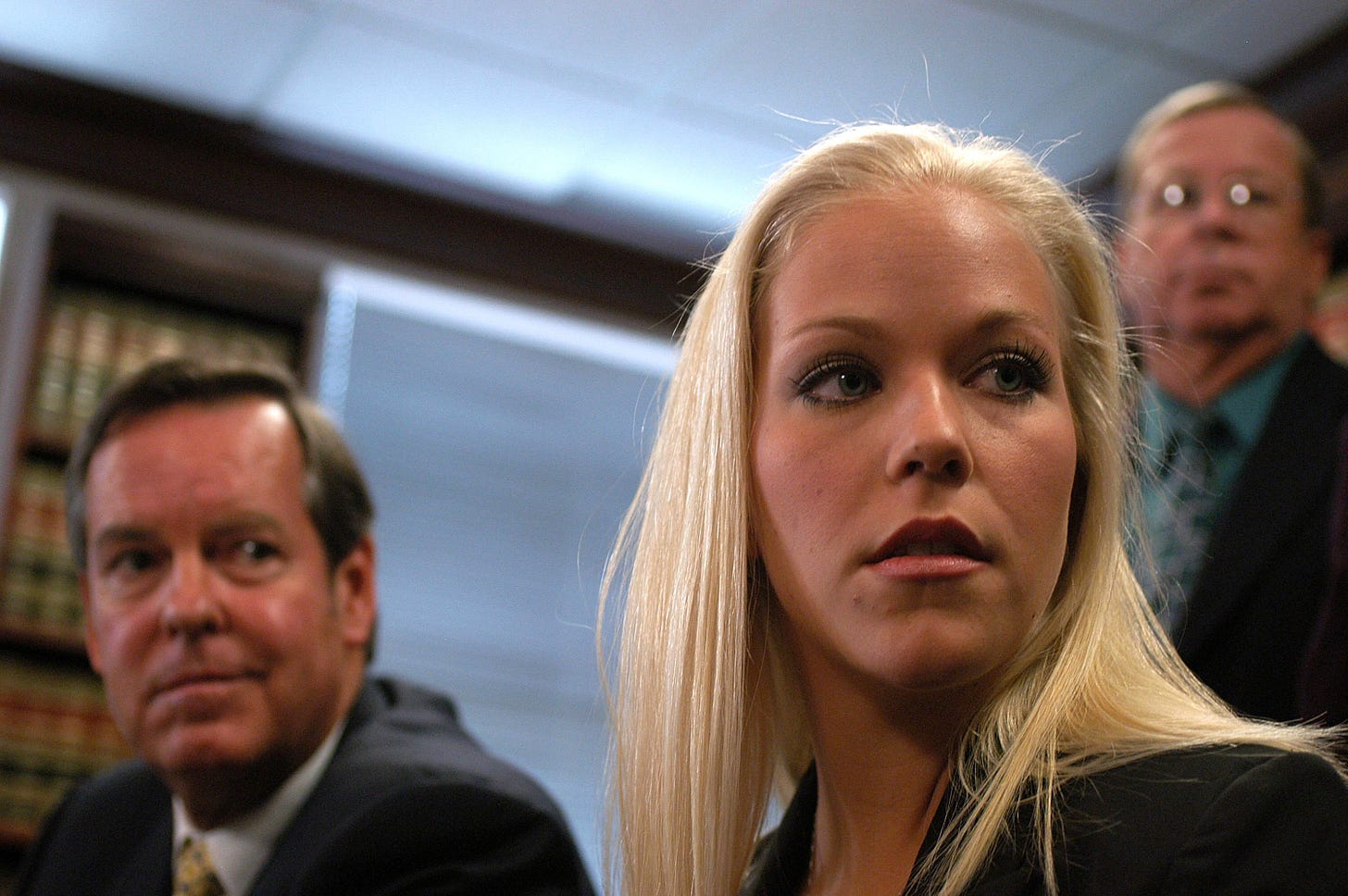Why Do Teachers' Unions Want It to be Legal for Teachers to Have Sex with Their Students?
Welcome to Crazytown.

There’s currently a bill in Rhode Island that seeks to make it illegal for school employees to have sex with students. The state teachers’ unions and the ACLU have decided to oppose it.
Welcome to Crazy Town, USA.
School sexual abuse is more common than you think. A 2004 Department of Education study by Carol Shakeshaft concluded that “the physical sexual abuse of students in schools is likely more than 100 times the abuse by priests.” In 2014, the firm Drive West Communications tracked an average 15 public reports of sexual abuse a week in schools.
And yet the law on this is inconsistent.
Many states with a legal consent age of 16 have language in their laws that prohibits adults in positions of authority from engaging in any sexual relationship with children in their care. The majority of states bump the age of consent to 18 in that situation though Michigan law doesn’t allow for teachers and students to have sexual relations at any age and Washington state increases the student age of consent to 21.
Last year Alex Marszalkowski, a representative in the Rhode Island legislature, attempted to pass a bill that would have criminalized sexual relations between all adults with custodial and supervisory responsibilities and those in their care. According to Rep. Marszalkowski, the ACLU objected to this bill saying that the prohibition was too broad.
This year, Marszalkowski introduced a replacement bill designed to narrow the scope. And now the ACLU claims that the new bill is “arbitrary and capricious.” After the bill got to the subcommittee stage, the state teachers’ union went on record objecting to it, too. Their reason: that it unfairly singles out school employees.
Which is, of course, the point. But like I said: Crazy Town.
It is intellectually dishonest for the ACLU or anyone to say that legislation which focuses on the adults who spend their days with other people’s children in the only place to which parents are compelled, by law, to send those children is “arbitrary.”
But consistency is not the ACLU’s strong suit. The bill also forbids non-employee volunteers from having sex with students. And the ACLU didn’t like that aspect of it, either. The ACLU said it had “concern about targeting school volunteers, because a volunteer coach could be close in age to a student and run afoul of the law under this bill.”
Which, again, is the point: Parents don’t want high school coaches—or their volunteer assistant coaches—having sex with the students.
This shouldn’t be hard.
The central issue behind the laws is the power imbalance and the inability of a 16-year-old student to meaningfully consent to sex with an authority figure. (The age of consent drops to 14 in Rhode Island and Massachusetts if the sexual touching by the adult is “non-penetrative.”)
The real question is what the teachers’ unions think they have to gain by being on the other side of this issue. Because Rhode Island isn’t the first time it has happened.
In Massachusetts, two parents discovered that their teenage daughter was in a sexual relationship with her Spanish teacher. Hotel receipts and graphic photos provided proof of the relationship. The teacher was fired after his administrators saw the evidence but he refused to end the relationship with his student. So the parents called the police. Which is when they discovered that the teacher was untouchable by law enforcement because he had not committed a crime under state law. The Massachusetts state police supported subsequent efforts to get the law changed. The teachers’ unions opposed it. The bill never saw the light of day.
In the Rhode Island case, union officials claim that that termination and potential loss of a teaching license is a sufficient deterrent and punishment for teachers who engage in sexual relationships with students. And perhaps if personnel records and financial settlements weren’t confidential they might be right.
But in the real world, things don’t work that way: Sexual predators move from district to district and state to state, preying on new students in new places precisely because there is no way to track them unless they have been arrested for a crime. This movement of teacher predators across district and state lines is so well known that there is a name for it in education circles—it’s called “passing the trash.”
Terri Miller, president of the Nevada-based advocacy group Stop Educator Sexual Abuse Misconduct and Exploitation calls this cycle “deliberate and calculated child endangerment.”
That’s not too strong a term. And it’s exactly what Rhode Island’s teachers’ unions are trying to protect.

